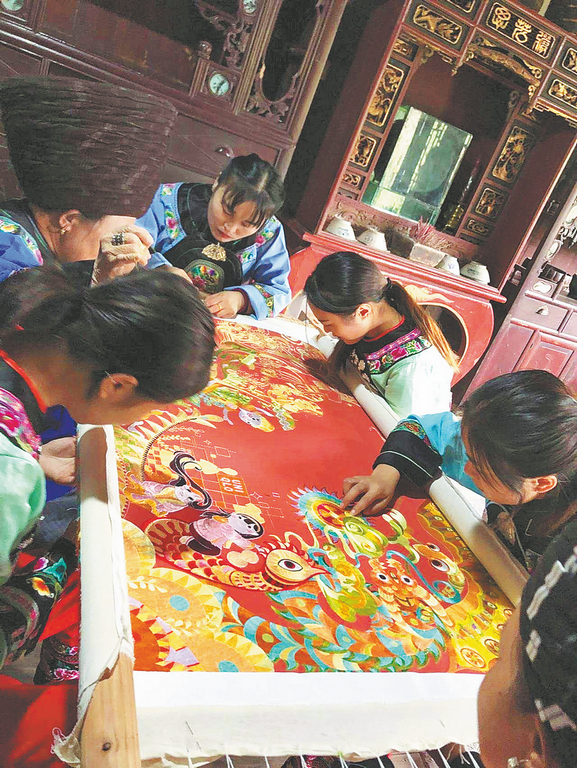

Seeing Yi's commitment to her cause, her husband Lin Jie, a businessman, joined forces and the couple established Valley Residents.
"I also picked up on the trend of the culture and tourism industries," Lin says about the reasons behind his decision to work with his wife.
The couple gave the project the name, which refers to a group of children growing up in the depth of the mountains of Xiangxi hoping to use all their strength to explore, protect and inherit the intangible cultural heritage of the local ethnic group.
"Through the creative power of design, we aim to express the beauty of our ethnic culture in a way that modern people are willing to accept, allowing the beauty of our ethnic culture and the spirit it carries to emerge from the deep mountains and reach out to the world," Yi says.
The project has set up ethnic craft cooperatives, including the Miao embroidery ones, in several villages of Hunan, and gives training to more than 1,000 embroiderers.
More than 2,000 village women have found jobs through Yi's project and have had their income increased by 10,000 yuan ($1,400) to 30,000 yuan.
Miao embroidery products from Valley Residents have been sent by the Ministry of Foreign Affairs as gifts to senior foreign diplomats and experts, and were showcased at international events, including the 2015 World Expo hosted by Milan, Italy.
As Yi worked with locals from various villages, she found many of them had rich natural resources, ethnic culture and history, so her team started to engage in culture and tourism planning and design in those villages under the support of the local government.
The operation in Zhonghuang village is one of the first independent endeavors by Yi and her team to empower rural tourism through culture. In the future, Yi says her team will continue to extend the Miao industry by combining agriculture, study tours and Miao food, so the village can be an ideal model of life for visitors from outside.
Although inheriting and developing innovations in ethnic intangible cultural heritage is a slow process, Yi says it's worth it.
"You can do many things throughout a lifetime, but it's not easy for everyone to have the opportunity to come across something meaningful, like intangible cultural heritage, which is actually the DNA of local culture and carries its spirit," Yi says. "It's our dream not only to fully express our design enthusiasm and technology in the village, but also sincerely work with villagers to jointly promote rural tourism and ultimately realize common prosperity."
Zhu Youfang contributed to this story.
Contact the writer at yangfeiyue@chinadaily.com.cn